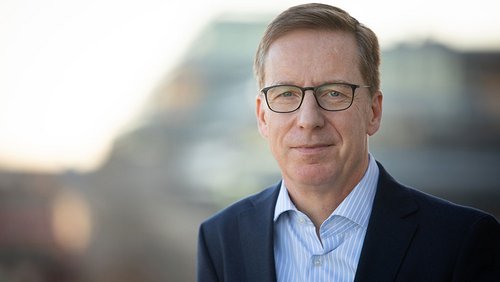The U.S. economic relationship with Europe is the most intense and largest economic relationship on the planet. Bigger than U.S.-China trade, or any other for that matter.

Competing Visions for a New Era of Globalization
Earlier this week, French president Emmanuel Macron published his recommendations for the future of Europe. It is a vision for re-founding European solidarity in the face of a more difficult and dangerous world. The impetus is that 2019 will be a year of major changes in Europe: a new European Parliament a new President of the European Council, a new European Commission, and a new leader of the European Central Bank.
The European Union is notoriously complex—how it operates, what authorities are exerted in Brussels by the European Commission versus what are the responsibilities of member states—and that complexity is an important part of the U.S. difficulty engaging with the European Union. But there’s no way around it—it’s a market of over 500 million people, an economy about as big as that of the United States, and one of the major players on the international economic scene.
There’s a growing discussion in Europe, often overlooked in the U.S. Some of the issues are the same on both sides of the Atlantic, including what are the challenges from China’s state-capitalist model for the global economy, especially when it comes to technology and the industries of the future. There is also a debate happening about whether the European Union should shift more toward an industrial policy that promotes European champions on a global stage, and about whether more European integration is a good thing, and if so, whether that should be on the economy and competition, or in social and labor market policy.
In this episode of The Zeitgeist, Prof. Dr. Michael Hüther, Director of the German Economic Institute, joined AICGS President Jeff Rathke and Senior Fellow Peter Rashish to talk about what Hüther calls the end of the second era of globalization and the challenges of shaping the third era of globalization, creating a European and an international framework that is politically sustainable and economically effective.
Michael Hüther in Episode 06 of The Zeitgeist: Competing Visions for a New Era of Globalization
Podcast

Wer folgt auf Biden? "Trump denkt rein national"
Deutschland und die EU sind auf eine zweite Amtszeit von Donald Trump nicht vorbereitet. Im Handelsblatt-Podcast "Economic Challenges" diskutieren IW-Direktor Michael Hüther und Bert Rürup die drohenden geopolitischen Folgen – und was sie für die Wirtschaft ...
IW
Trump oder Harris oder …? Worauf sich Europa einstellen muss
Wenige Monate vor der Präsidentschaftswahl in den USA hat Donald Trump gute Chancen auf eine Wiederwahl. Auf Seiten der Demokraten hat der amtierende Präsident seine Kandidatur nach langem Zögern zurückgezogen, Vizepräsidentin Kamala Harris wird mit hoher ...
IW